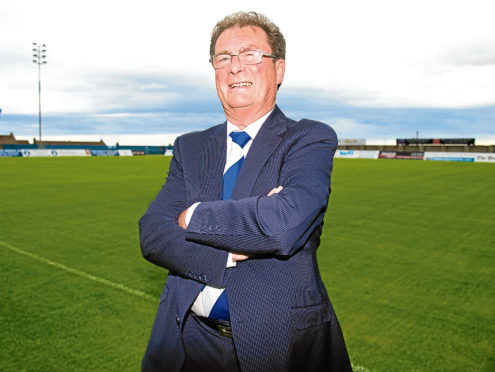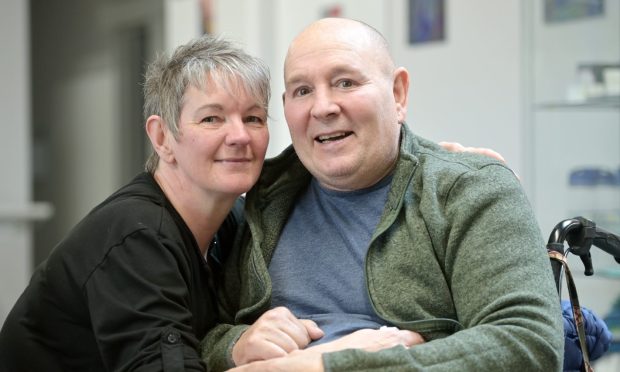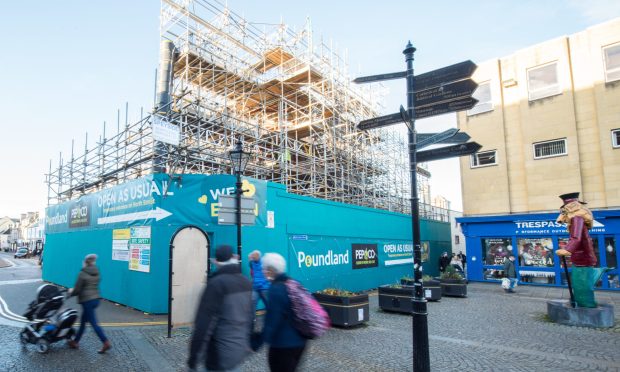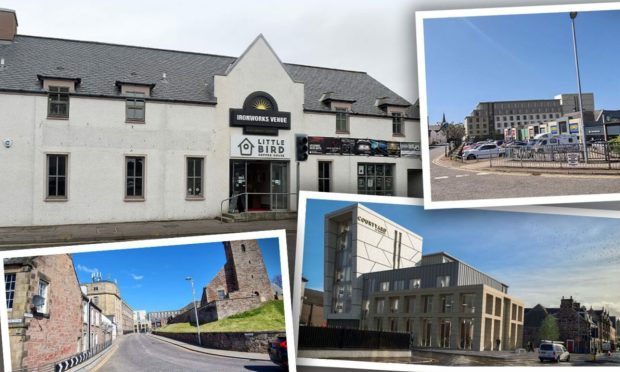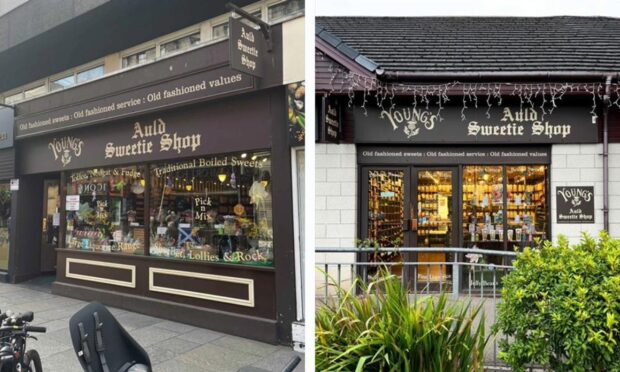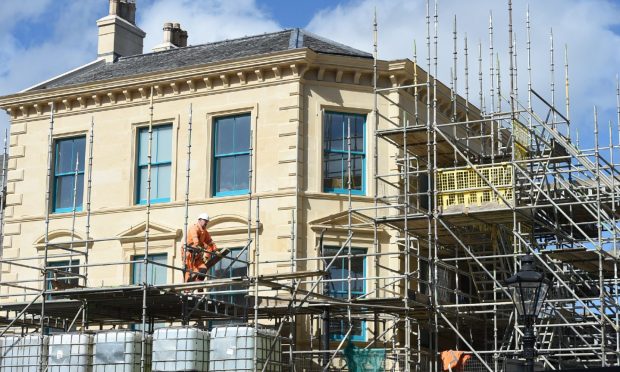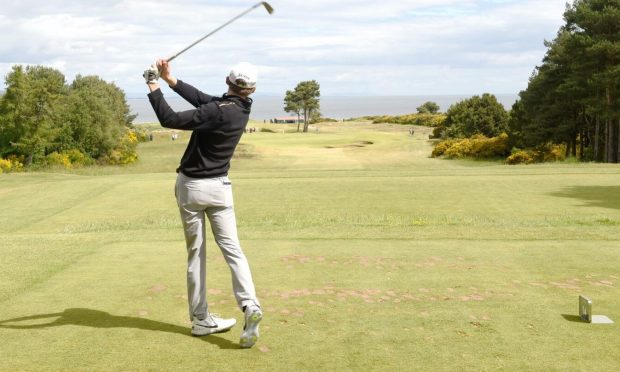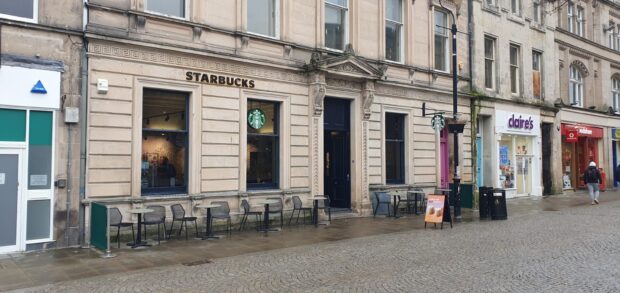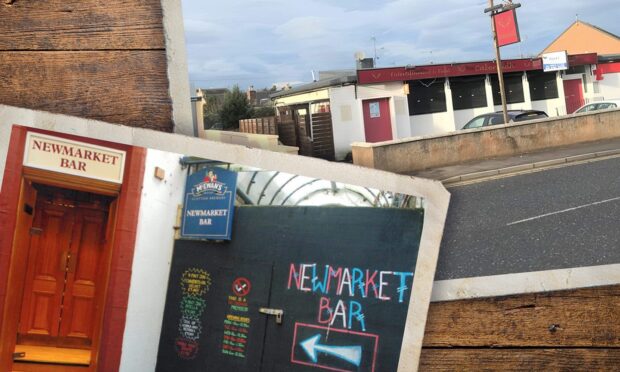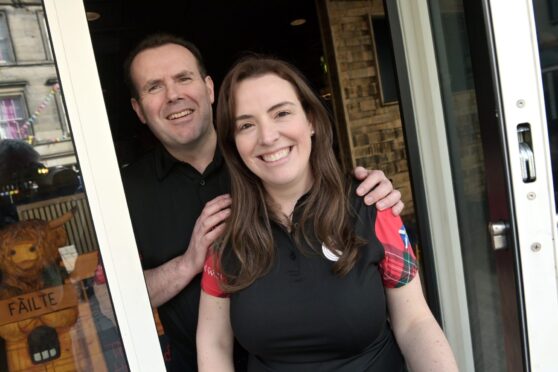If you have ever doubted the value of football to society, then I suggest you spend just a short time in the company of north-east entrepreneur Rodger Morrison.
You will be glad you did and come away with a better understanding of why the sport is so much more important than what happens on the pitch.
Mr Morrison, chairman of Peterhead Football Club, epitomises everything good about the senior game in the lower divisions.
It is a world far removed from all the glamour and excitement but also the big egos, rampant greed, exorbitant admission prices and ridiculously high transfer fees and salaries blighting football at the highest level.
Mr Morrison and I chatted at Balmoor Stadium, the immaculate little ground where the Blue Toon play their home games.
He was suffering a hangover of sorts – but not the kind which involves too much alcohol – after an apparently unlucky 3-2 defeat by Dumbarton in a Scottish Cup tie the night before.
Nobody likes to lose but the chairman’s demeanour told me this particular result hurt more than most.
“We were by far the better team,” he said and in that one small expression of implied injustice he summed up for me how sport – not just football – has the capacity like nothing else to kick you in the teeth one day, and make you weep tears of joy the next.
I’ve no idea if anyone else has ever had the moniker Mr Peterhead, but Mr Morrison seems to fit the bill perfectly.
One of his top priorities at Balmoor – and undoubtedly the most important – is to get local firms onside and backing the team.
With an average attendance of less than 1,000, it doesn’t take a mathematician to work out that sponsorship is vital for keeping the club afloat.
Mr Morrison said: “At two home games a month, on average, the fans coming through the gate account for just one-tenth of what is required in outgoings.
“The other nine-tenths must come from businesses in the local community.”
Many firms have, of course, been impacted by the recent economic downturn in the north-east, so do not have a lot of cash to spare.
So why spend it on a football club?
Mr Morrison took me on a brief journey through the economics of football, which has social and other impacts like no other sport on the planet.
A successful football team raises the profile of its home town or city on the world stage, while also creating a feel-good factor which can boost economic productivity. Many books and journal articles have been written on the subject.
For clubs higher up the chain, the financial repercussions of relegation are not limited to the football stadium – local shops and other businesses suffer when attendances fall.
You would struggle to find a better global marketing medium than football for a relatively small town, like Peterhead, with a league team.
Football fans around the world become familiar with place names just by hearing the results, or seeing games on satellite TV – just think of the attention heaped on Fraserburgh these past few weeks, thanks to their televised cup tie against Rangers.
Mr Morrison highlighted a couple of examples from his own travels where people he would never have imagined had heard of Peterhead surprised him, and it was entirely down to the football club.
Most businesspeople in and around the town recognise the importance of strong links with their local football club in good times and bad, he said, adding: “Charles Ritchie was a big sponsor here. They (Score Group) went through a bit of a lean time but they are absolutely flying again.”
Mr Ritchie, who died last year, has a room named after him at Balmoor in recognition of his many business achievements at engineering group Score, which he owned and ran, as well as his financial support for the club.
It is the success of local firms like Score and wider developments in the local economy, such as a recent flurry of boatbuilding in the north-east fishing industry, that fuels Mr Morrison’s overall optimism for the Buchan port.
He is rather less sure about the prospects for the town centre. “Its decline started a long time ago,” he said, highlighting a shift from accommodation to retail space that is no longer required.
“There used to be loads of life in the town centre in back-street apartments but in their wisdom the planners decided to knock them down,” he added.
It is a subject he has more than a passing interest in as he has commercial property investments – through Rodger Morrison Holdings – in both Peterhead and Aberdeen. Pedestrianised streets are for big cities and not towns, while recent proposals to axe free parking around Aberdeenshire are “unwise”, he said.
He is a frequent visitor to a town in Spain where “you can park anywhere” and the local economy is thriving.
The former chef also owns the Cock and Bull restaurant, near Balmedie, which is among the many north-east hospitality industry businesses to have been hit by a big jump in business rates despite revenue suffering during the recent economic downturn.
He said higher rates were a local authority “cash cow” and disincentive to investment in the west end of Aberdeen, where he owns property.
The journey from chef to entrepreneur started about 40 years ago, when he took over a local ice-cream parlour and fish and chip shop. It became Zanres, with about four outlets at one stage.
His property, dining and also catering interests cannot compare with his long-term investment in time and money to making sure there is a team on the park at Balmoor.
He has been associated with the club “nigh on 30 years” and is proud of its work in the local community, whether it be through hospital and school visits or youth development.
Mr Morrison added: “The football club does more for the local community than any council or whatever. The end game is always to get more people coming through the gate.”
Peterhead FC is a relative newcomer to the Scottish Football League, having only moved up from the Highland League in the 2000-01 season.
“We’ve had to run a lot faster to create income,” Mr Morrison said, adding the current League Two title contenders had gained an enviable reputation for hospitality packages.
It’s also very much a seven days a week business, with bar takings and a wide range events helping the club coffers.
The chairman, who turns 70 this year and describes himself as the club’s biggest supporter, would love to see more people getting involved at boardroom level.
This would free him up from some of the administrative burden which keeps him from spending more time at home in St Fergus with his wife, Irene, and family.
The late, great football manager Bill Shankly once said he was “very disappointed” by those who believed football was a matter of life and death as it was “much more important than that”.
While it definitely is not life and death, the social and economic links between football clubs and their communities – not to mention the fact that one single event, the World Cup final, grabs global attention like nothing else – give the sport an importance that goes well beyond the playing pitch.
The fans account for just one-tenth of what is required in outgoings. The other nine-tenths must come from businesses
